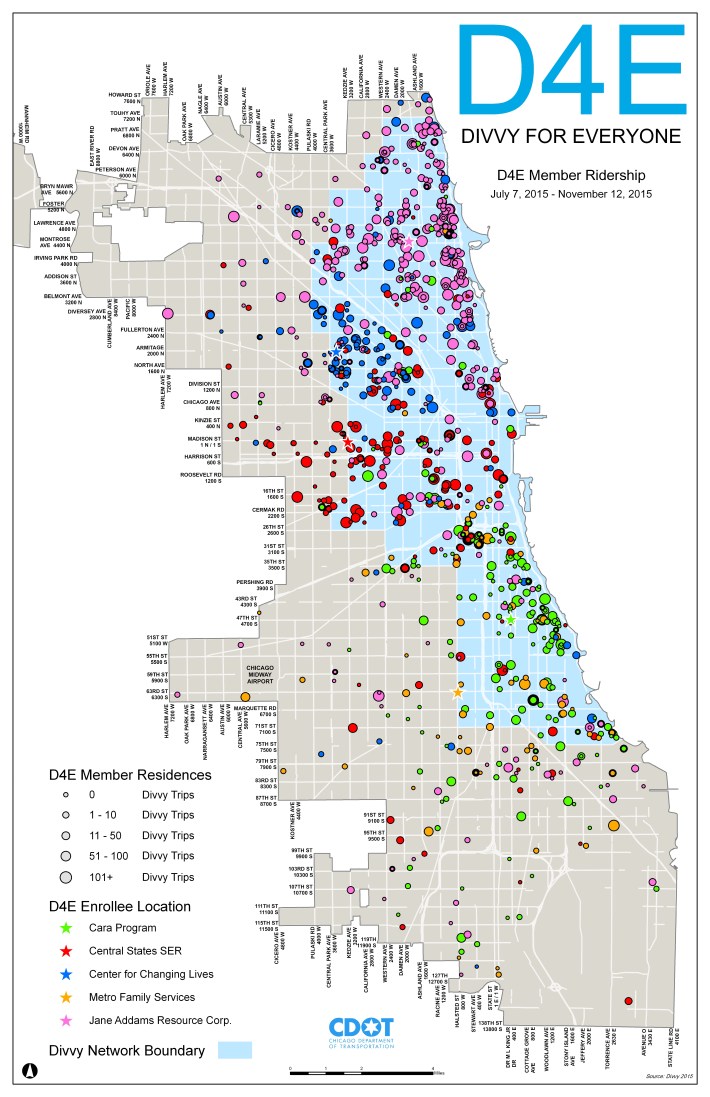
The city's Divvy For Everyone program to get low-income and unbanked residents using the popular bike-share system looks to be gaining popularity itself. Yesterday the Chicago Department of Transportation's Divvy For Everyone program manager Amanda Woodall discussed D4E figures at the quarterly Mayor's Bicycle Advisory Council, a public meeting where the city shares its bicycle initiatives.
Until D4E, Divvy required people to have a debit or credit card to purchase a Divvy membership. The card ensures that Divvy can bill you if you lose or a damage a bicycle, but this policy presented a barrier to unbanked Chicagoans. CDOT, Divvy, and the Better Bike Share Partnership are trying to address this problem, inherent in bike share systems nationwide. The BBSP and Divvy's sponsor, Blue Cross Blue Shield, are subsidizing the D4E program.
A person must provide proof of residency and low-income status, and pay $5 in cash at one of five service centers to obtain a membership through D4E.
In September, Woodall reported that CDOT had hit 800 sign-ups since the program launched on July 7, already surpassing their goal of reaching 750 D4E members within one year. On Thursday, she reported that 1,107 people have enrolled. There's no enrollment cap right now.
D4E members currently make up 3.5 percent of the 31,000 annual members. Of those who signed up before November 13, 78 percent have already ridden a Divvy bike at least once and 47 percent have taken at least 10 trips, Woodall said.
The top female and male riders, judging by the number of trips taken, "are both 59 years old," Woodall said. "That's not what I was expecting to see." In addition, the percentage of female D4E members is slightly over half, while the overall Divvy membership skews male, at 62 percent.
When it comes to actual trips taken, D4E gender balance is still better than the overall membership: 46 percent of trips were taken by female members. Overall, from April to June of this year, the latest period for which Divvy has published data on its website, female Divvy members took only 25 percent of trips.
Woodall added that D4E members have used every single Divvy station and presented a map that showed a large portion of the D4E members live outside the Divvy coverage area. She said this shows you don't have to be in the system area to be able to use the system.
One meeting attendee asked which IDs are acceptable to prove residency. CDOT said that applicants must show an ID issued by the Secretary of State that has their Chicago address on it. The audience member said that this would prevent some populations from accessing D4E.
The next MBAC meeting is on Thursday, March 9, at City Hall, 121 N LaSalle Street, in room 1103. No RSVP is necessary.



